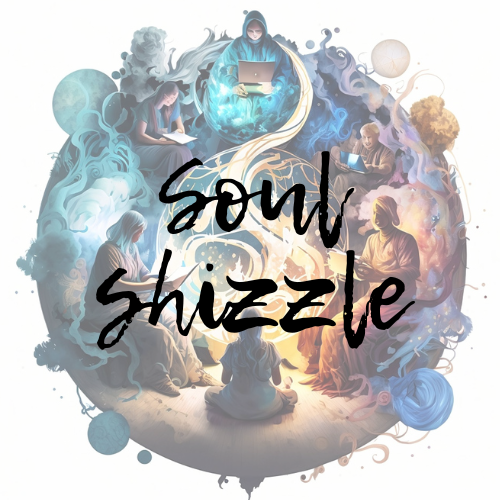Forgiveness Frees You: How Letting Go Unlocks True Freedom
Have you ever noticed how holding onto hurt feels like carrying around a heavy backpack filled with stones? Each grudge, each painful memory adds another weight until you’re almost crushed under the burden. I’ve been there, and I know exactly how exhausting it can be. That’s why I want to talk about something transformative today: forgiveness.
But wait – before you think this is another piece about simply “letting things go,” let me assure you it’s not. We’re going to dive deep into what forgiveness really means, why it’s so powerful, and most importantly, how it can set you free from emotional chains you might not even realize you’re wearing.
The Hidden Truth About Forgiveness
Here’s something that might surprise you: forgiveness isn’t about the other person at all. It’s about you. It’s about your healing, your peace, and your freedom. Think about it – when you’re holding onto resentment, who’s really suffering? You are. The person who hurt you might be going about their life completely unaffected, while you’re still carrying that emotional burden day after day.
I remember struggling with this concept myself. Like many people, I used to think that forgiving meant I was somehow saying “what you did was okay.” But that’s not what forgiveness is about at all. Let me explain why.

What Forgiveness Really Means (And What It Doesn’t)
Forgiveness is often misunderstood. It’s like there’s this unwritten rule that forgiving means forgetting or reconciling with someone who hurt you. But that’s not true at all. Here’s what forgiveness actually means:
Think of forgiveness as declaring emotional independence. It’s saying, “I’m no longer allowing this pain to control my life.” It’s about breaking free from the invisible chains that bind you to past hurts.
What forgiveness is:
- A conscious choice to release yourself from emotional pain
- An act of self-love and self-care
- A process of emotional healing
- A way to reclaim your inner peace
- A path to personal freedom
What forgiveness isn’t:
- Condoning harmful behavior
- Forgetting what happened
- Requiring reconciliation
- Denying your feelings
- Making excuses for others
The Silent Toll of Unforgiveness
Let’s talk about something that often goes unnoticed – the hidden cost of holding onto resentment. It’s like having a slow leak in your emotional energy tank. You might not notice it immediately, but over time, it drains you completely.
The Emotional and Mental Impact
When you refuse to forgive, you’re essentially keeping yourself tethered to the past. It’s like watching the same painful movie over and over in your mind. This constant replay affects you in ways you might not realize:
- Your mind becomes preoccupied with negative thoughts
- Anxiety and depression can take root
- Your emotional responses become heightened
- Decision-making becomes clouded
- Relationships suffer as trust becomes harder
The Physical Toll
What many people don’t realize is that unforgiveness doesn’t just stay in your mind – it manifests in your body too. Research has shown that holding onto resentment can lead to:
- Elevated stress hormones
- Weakened immune system
- Increased blood pressure
- Chronic muscle tension
- Sleep disturbances
- Digestive issues
The Spiritual Cost
There’s also a deeper, spiritual dimension to unforgiveness. It’s like putting up a wall that blocks positive energy from flowing into your life. When you’re stuck in resentment:
- Your ability to experience joy diminishes
- Gratitude becomes harder to feel
- New opportunities might pass you by
- Positive relationships become more difficult to maintain
- Your overall sense of well-being suffers
The Journey to Forgiveness: A Step-by-Step Guide
Now that we understand why forgiveness is so important, let’s talk about how to actually do it. Remember, forgiveness is a journey, not a destination. It’s okay if it takes time – what matters is that you’re moving forward.
1. Acknowledge Your Pain
The first step is being honest with yourself about your hurt. It’s like cleaning a wound – it might sting at first, but it’s necessary for healing. Take time to:
- Journal about your feelings
- Speak with a trusted friend or therapist
- Allow yourself to feel without judgment
- Name specific emotions you’re experiencing
- Recognize how this situation has affected you
2. Understand That Forgiveness Is a Choice
This is crucial – forgiveness isn’t something that just happens to you. It’s a conscious decision you make, sometimes over and over again. It’s choosing your own peace over the satisfaction of holding onto anger.
3. Shift Your Perspective
Try to look at the situation from different angles. This doesn’t mean excusing bad behavior, but understanding that:
- People often act from their own pain
- Everyone has their own struggles and limitations
- You don’t have to understand someone’s actions to forgive them
- Your healing isn’t dependent on their change or awareness
4. Practice Emotional Release
This is where the real work happens. Find healthy ways to release the emotional charge:
- Try forgiveness meditation
- Practice deep breathing exercises
- Write a letter (that you don’t have to send)
- Use physical exercise to release tension
- Engage in creative expression
5. Set Healthy Boundaries
Remember, forgiving doesn’t mean becoming vulnerable to the same hurt again. It’s important to:
- Establish clear boundaries
- Communicate your needs effectively
- Choose whether to maintain contact
- Protect your emotional well-being
- Trust your intuition about relationships

The Often Forgotten Piece: Self-Forgiveness
Here’s something we often overlook – the importance of forgiving ourselves. Sometimes, we’re our own harshest critics, holding onto guilt and shame long after we’ve forgiven others.
Why Self-Forgiveness Matters
Self-forgiveness is crucial because:
- It breaks the cycle of self-punishment
- It allows for personal growth
- It opens the door to self-compassion
- It improves your relationship with yourself
- It sets a foundation for forgiving others
Steps to Self-Forgiveness
- Acknowledge your actions without judgment
- Understand your motivations at the time
- Learn from the experience
- Make amends where possible
- Choose to release self-blame
- Practice self-compassion daily
Moving Forward: Life After Forgiveness
When you truly forgive, something remarkable happens. It’s like finally putting down that heavy backpack you’ve been carrying. You’ll notice:
- More energy for things that matter
- Improved relationships
- Better sleep
- Reduced anxiety
- Increased joy and peace
- Greater emotional freedom
Maintaining Your Freedom
Remember, forgiveness might need to be a regular practice. Sometimes old feelings resurface, and that’s okay. When this happens:
- Acknowledge the feelings without judgment
- Remind yourself why you chose forgiveness
- Focus on the present moment
- Practice gratitude for your growth
- Celebrate your emotional freedom
Your Invitation to Freedom
Forgiveness is truly one of the most powerful gifts you can give yourself. It’s not always easy, and it’s not always quick, but it’s always worth it. Think of it as opening the door to your emotional prison and walking out into the sunshine of freedom.
Remember, you don’t have to wait until you feel ready to forgive. Sometimes, the very act of choosing forgiveness is what creates the readiness within you. Every step you take toward forgiveness is a step toward your own freedom and peace.
As you close this article, I invite you to ask yourself: What would your life look like if you weren’t carrying the weight of unforgiveness? What joy, peace, and opportunities might be waiting for you on the other side of letting go?
The journey of forgiveness begins with a single choice – your choice. Are you ready to take that first step toward freedom?
Remember, forgiveness isn’t just about releasing others – it’s about freeing yourself. It’s about choosing peace over pain, freedom over resentment, and love over fear. Your journey to forgiveness is unique to you, and there’s no timeline for when it should happen. Trust yourself, be patient with the process, and know that every small step toward forgiveness is a step toward a lighter, brighter future.
We may earn a commission for purchases made using our links. Please see our disclosure to learn more.




